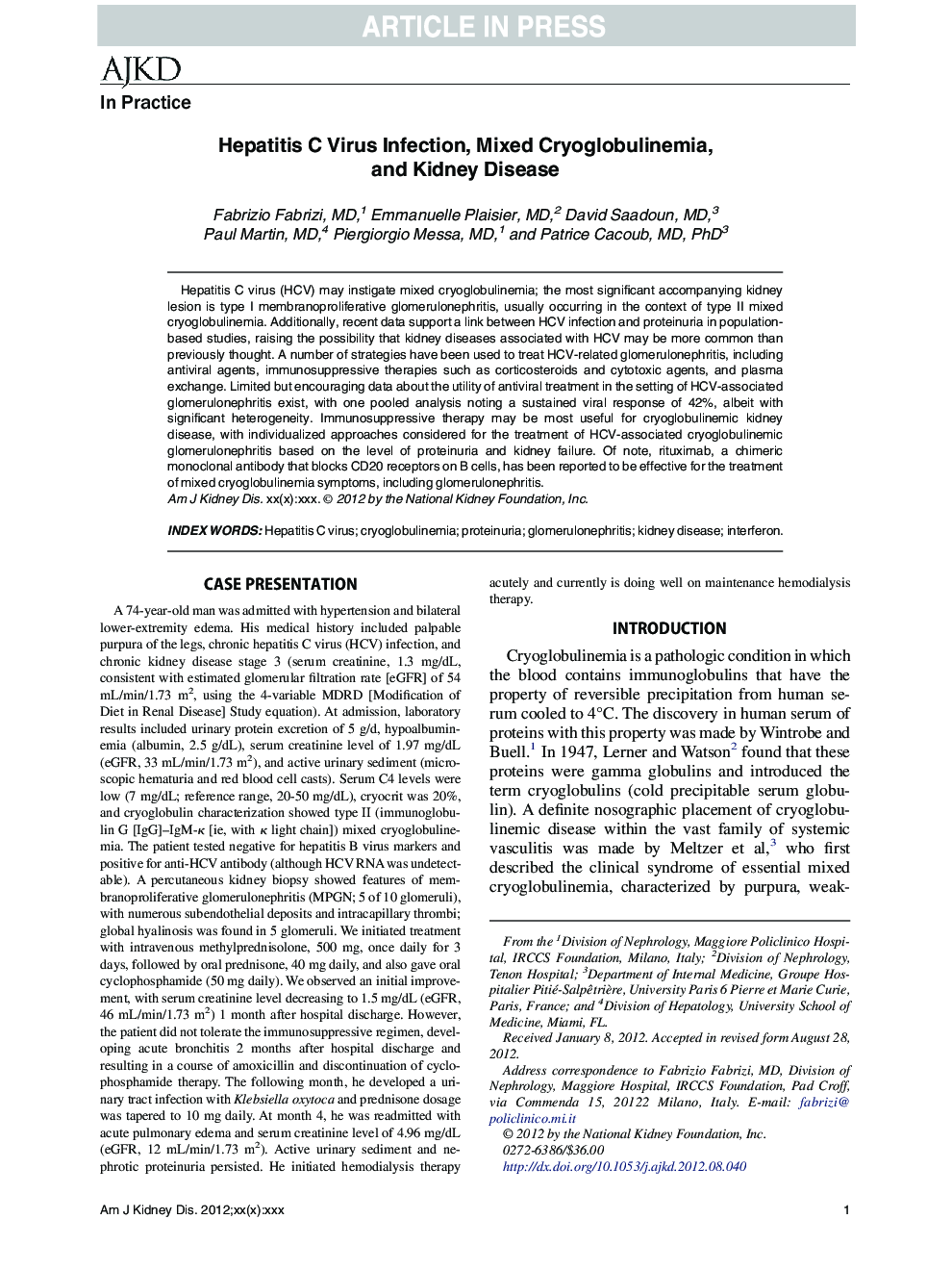| Article ID | Journal | Published Year | Pages | File Type |
|---|---|---|---|---|
| 6157641 | American Journal of Kidney Diseases | 2013 | 15 Pages |
Abstract
Hepatitis C virus (HCV) may instigate mixed cryoglobulinemia; the most significant accompanying kidney lesion is type I membranoproliferative glomerulonephritis, usually occurring in the context of type II mixed cryoglobulinemia. Additionally, recent data support a link between HCV infection and proteinuria in population-based studies, raising the possibility that kidney diseases associated with HCV may be more common than previously thought. A number of strategies have been used to treat HCV-related glomerulonephritis, including antiviral agents, immunosuppressive therapies such as corticosteroids and cytotoxic agents, and plasma exchange. Limited but encouraging data about the utility of antiviral treatment in the setting of HCV-associated glomerulonephritis exist, with one pooled analysis noting a sustained viral response of 42%, albeit with significant heterogeneity. Immunosuppressive therapy may be most useful for cryoglobulinemic kidney disease, with individualized approaches considered for the treatment of HCV-associated cryoglobulinemic glomerulonephritis based on the level of proteinuria and kidney failure. Of note, rituximab, a chimeric monoclonal antibody that blocks CD20 receptors on B cells, has been reported to be effective for the treatment of mixed cryoglobulinemia symptoms, including glomerulonephritis.
Related Topics
Health Sciences
Medicine and Dentistry
Nephrology
Authors
Fabrizio MD, Emmanuelle MD, David MD, Paul MD, Piergiorgio MD, Patrice MD, PhD,
